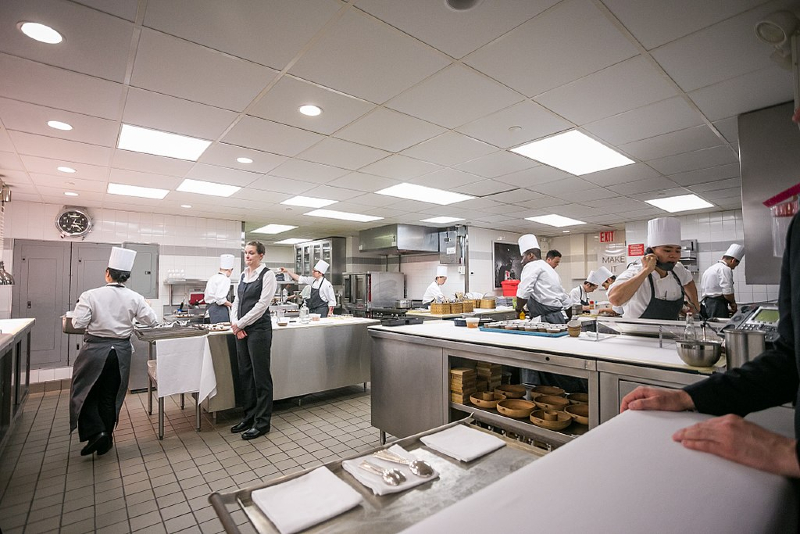
COVID-19 brought the planet to a standstill and the restaurant industry to its knees. Even the chef and owner of one of the world’s most renowned restaurants thought he might lose everything. In response, Humm changed everything at Eleven Madison Park’s 3-star Michelin-rated establishment.
A May press release announced that Humm would reopen EMP from pandemic closure with a fully plant-based menu. A menu that would remain at a meaty price point at that — 12 courses for $335. Humm didn’t mince words in his messaging, telling the New York Times, “The current food system is simply not sustainable, in so many ways.”
EMP recently topped the World’s 50 Best Restaurants list, but like almost every other restaurant, it had to lay off all its employees due to pandemic closures, struggled to pay vendors, and faced the once-inconceivable prospect of going under. After looking death in the face, Humm made sure that EMP (like many restaurants right now) reopened with a renewed sense of purpose that is reflected in its menu.
A scathing end-of-September review from Pete Wells of the New York Times ended with an affronted Wells questioning Humm’s motivation and the consequences of this innovation.
Related Guides
- Best Restaurants in America
- How Michelin Assigns Its Stars
- How to Stay Safe Dining Out
- How to Dine Outside
On the first front, Humm has been up front about his intention: EMP is not sustainable while paying for meat after over a year of COVID-19 conditions and closures.
“At times I thought, well, if we’re going bankrupt with Eleven Madison Park, maybe that’s the end of a chapter,” Humm told CNN in an interview in August. “I actually got to the place where I was comfortable with that idea. I mean, you have to.”
The larger consequences to the food system — how do small farms sustain themselves if no high-end restaurants are buying from them — looms as one of a hundred questions about what’s now a creaky supply system and a less and less certain future for small farms in America.
With most of the food industry still dedicated to enormous factory farms, though, Humm said that he came to find the idea of eliminating meat liberating. As many others before him have concluded, sustaining a stable food system requires less meat consumption.
Eleven Madison Park is all about sustaining itself as well. As the restaurant attempts to retain at least some of the employees that it had to lay off, part of this will be paid for by a secret meat room — a symbol of a society where exclusivity is available to those who can pay for it. Prices for the seven-course tasting menu at the meaty private dining room run up to $285 per person or $295 with a reserve wine pairing.
A statement for the restaurant read that its “intention was always to transition the private dining room to be fully plant-based as well. In early September, we made the decision to remove the last remaining animal products from the private dining room menus by January 1, 2022.”
Whether or not that actually happens remains to be seen. Humm has, however, trained Eleven’s audience to expect “endless reinvention,” one of 11 touchstones on a sign that hangs in the restaurant’s vast and precise kitchen. EMP acknowledges that this transition is going to take time and patience, even if the restaurant is overcompensating, according to connoisseurs with tongues as complex as Wells’.
“It is an incredible undertaking to reopen a restaurant, especially in the midst of a rapidly evolving pandemic,” Humm’s May statement read. “It took the entirety of our staff’s focus and efforts to execute this at the level Eleven Madison Park operates.”
Whether that continues to be worth $335 plates will remain a question that will reverberate throughout the industry.
Read More: Inside Justin Timberlake’s Swanky New Nashville Restaurant



